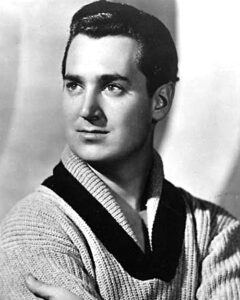
Neil Sedaka was born March 13, 1939 in Brooklyn, New York, to taxi driver Mordechai Sedaka, a Sephardic Jew, and his wife Eleanor Appel, an Ashkenazi Jew. The family was distantly related to Eydie Gorme. After a second-grade teacher suggested Sedaka had musical aptitude, his mother took a department store job to earn enough money to pay for a second-hand upright piano. At the age of 8, Sedaka auditioned successfully for Juilliard School of Music’s Preparatory division for Children, which he attended on Saturdays. When he was 13, he was introduced to Howard Greenfield, 16, beginning a songwriting partnership.
While attending Abraham Lincoln High School, Sedaka and some classmates formed the Linc-Tones, who rebranded themselves as The Tokens shortly before Sedaka left the group to perform as a solo singer. He recorded some forgettable songs prior to 1959 when he had his breakout hit, “Oh Carol,” which he named after Carole King, whom he had dated in high school. King’s husband, Gerry Goffin, took the tune and penned a playful response, “Oh Neil” which King recorded.
More Sedaka hits followed in the 1960s, among them “Stairway to Heaven,” “Calendar Girl,” “Happy Birthday Sweet Sixteen,” “Breaking Up is Hard to Do,” and “Next Door to an Angel.” In addition to his own songs, Sedaka and Greenfield wrote songs for other performers including Connie Francis, and Jimmy Clanton. Sedaka’s piano work is heard in Bobby Darin’s “Dream Lover.”
Sedaka branched out to recording his songs in Italian, Spanish, German, Hebrew, Japanese, French, and Yiddish. With the advent of the Beatles and the so-called British Invasion, Sedaka said “the bottom fell out” of his recording career. He remained a popular concert attraction, particularly in the United Kingdom and Australia. In the UK, he recorded the sad ballad, “Solitaire” in 1972, later meeting Elton John and signing with his Rocket Record Company label. They produced a “Sedaka’s Back” album which notably included “Laughter in the Rain,” which reached No. 1 as a single. Along with Greenfield, he wrote “Love Will Keep Us Together,” a Number 1 hit which Captain & Tennille recorded in 1975. A couple years later, Sedaka left John’s label for Elektra, and then went to Curb Records. In 1983, Sedaka was inducted into the Songwriters Hall of Fame.
He was married to Leba Strassberg in 1962. The couple have a daughter Dara, with whom Sedaka occasionally recorded, and a son Marc, a screenwriter.
Tomorrow, March 14: Albert Einstein
*
SDJW staff